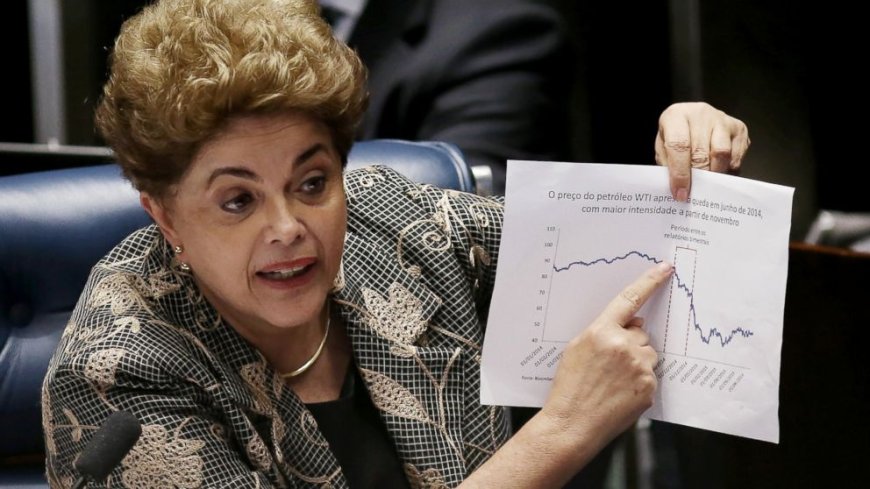Impeachment Shakes Brazil: How Corruption, Military Influence, and Regional Alliances Are Redefining Its Future
Brazil’s president was impeached over a sweeping corruption scandal. Explore the political fallout, the military’s role, and the shifting dynamics in South American alliances.

A dramatic impeachment amid the Car Wash scandal
Brazil’s Congress has just removed its president from office following revelations that he played a central role in a renewed Operation Car Wash corruption probe—a scheme that unraveled decades of political patronage tied to state‑run enterprises like Petrobras Voice of AmericaWikipedia+1Reuters+1.
This impeachment has triggered seismic change: from shifting public trust and overt military tensions, to the recalibration of Brazil’s alliances with neighbours across South America. Far from mere domestic theater, this moment may redirect the trajectory of Brazil’s regional influence—and unravel a fragile democratic fabric.
The scandal that sank a presidency
The ruling involved alleged diversion of public contracts and illicit campaign funding tied to Petrobras once again—echoing a scandal that toppled former presidents, including Dilma Rousseff WikipediaWikipedia. But this latest iteration differs: it implicates high‑ranking military officials and the clandestine funding of a right‑wing campaign aimed at weakening judicial oversight.
Witness testimony and bank‑transfer trails revealed months of covert efforts involving generals close to the administration. As Reuters reported, “The case against Brazil coup plotters could end decades of impunity” AP NewsReuters.
Political fallout: divisions run deep
Explosive split in Congress
Lawmakers approved impeachment in a near party‑line vote. Supporters argued the president violated anti‑corruption regulations and abused his powers. Opponents condemned the process as politically motivated, pointing to past instances—such as Dilma Rousseff’s ousting in 2016—as examples where impeachment was used to settle score Wikipedia+4Wikipedia+4The Guardian+4.
However, over 200 deputies from the ruling coalition backed the motion—a surprising shift that highlighted growing discontent even among allies.
The public responds
Mass demonstrations have erupted in Brasília, São Paulo, and Rio. Protesters both welcomed the removal as a long‑overdue accountability measure and questioned whether it signals a broader military interference. Many carried banners demanding a renewed commitment to rule of law and democratic institutions.
The military’s controversial involvement
Where generals stand now
What makes this impeachment particularly volatile is the role played by senior military officers. Four stars, including a former Defense Minister, were named in court filings as conduits for illicit funds and ideological support AP News.
Another Reuters headline characterised the impeachment as “a potential end to decades of impunity,” signaling a break with Brazil’s post‑dictatorship era Reuters.
Civil‑military relations: a turning point
Brazil has long walked a fine line since its democratization in the 1980s. For the first time in decades, the judiciary has initiated cases against serving generals for political meddling, sharply testing the country’s democratic resilience.
Observers warn this could polarize public opinion. A recent INPE‑Ibope poll shows 40% of respondents believe the military should defend the constitution—even if it led to intervention—but a majority (52%) oppose any military role in political affairs.
Regional alliances face a reshuffle
Argentina, Chile, and the Pacific bloc
Across the continent, regional leaders have watched Brazil’s events with keen interest. The Pacific Alliance—led by Mexico, Colombia, Peru, and Chile—expressed public support for Brazil’s democratic institutions through statements issued by Mexico’s foreign ministry.
Meanwhile, Argentina’s new government, keen to collaborate more closely with Brazil, issued a measured statement, urging “respect for the legal process and swift stabilization of Brazil’s political environment.”
Mercosur and ideological pressure
Brazil’s impeachment raises concerns for Mercosur countries. With varying ideological leanings in power—from progressive in Uruguay and Paraguay to conservative in Paraguay—Hemispheric unity over trade, environmental policy, and anti‑corruption efforts is at risk.
Analysts argue that a Brazil distracted by internal crises could hamper coordination on regional infrastructure programs and climate initiatives tied to the Amazon Basin.
International response: cautious optimism
The United States and EU weigh in
The U.S. Secretary of State issued a statement applauding Brazil’s constitutional process and urging expedited prosecution of those implicated in the scandal. Meanwhile, EU foreign affairs chief Josep Borrell emphasised that accountability is the bedrock of democratic partnerships.
Foreign investors, who had been jittery amid corruption and coup‑plot chatter, are now reassessing Brazil’s risk profile. Roughly $5 billion in bond sell‑offs since May shows deep investor unease—though treasury yields have stabilized slightly following the impeachment vote.
Global civil‑society perspective
Transparency International praised the impeachment as a victory for anti‑corruption reform, though warned it is only the beginning. Meanwhile, Human Rights Watch has called for transparent judicial proceedings, highlighting the need for credible trials to affirm Brazil’s democratic transitions.
What comes next?
Judicial reckoning
The Supreme Court-appointed judges will now oversee trials of former military and political actors charged with using state resources for covert political aims. Given precedents set by investigations like Lava Jato, observers expect high stakes in sentencing decisions Reuters.
Interim leadership and elections
An interim president—drawn from the opposition bench—is expected to serve pending new elections. Pro‑reform candidates, long silenced by scandal fatigue, are now regrouping in calls for transparent governance and institutional renewal.
Regional repercussions
Bolstered by a fresh mandate, Brazil could pivot its foreign policy: rejoining proactive climate diplomacy, reaffirming commitments to trade integration, and resisting authoritarian drift in allied nations.
At the same time, rivals like Venezuela and Nicaragua may attempt to exploit Brazil's internal instability, straining bilateral relations.
A pivotal moment for Brazilian democracy
Brazil’s impeachment is more than graft being punished—it marks a watershed in electing public accountability and defending the post‑dictatorship democratic framework. With active military figures under judicial scrutiny, the country tests whether its democratic institutions can truly enforce limits on power.
South America watches closely. Brazil’s political course will influence continental dynamics: from economic integration and environmental guardianship to the consolidation—or erosion—of democratic norms.
In the weeks ahead, the pace of legal proceedings, the posture of the interim government, and the reactions of neighbours will determine whether Brazil emerges strengthened—or if this chapter marks the start of deeper instability.




















































